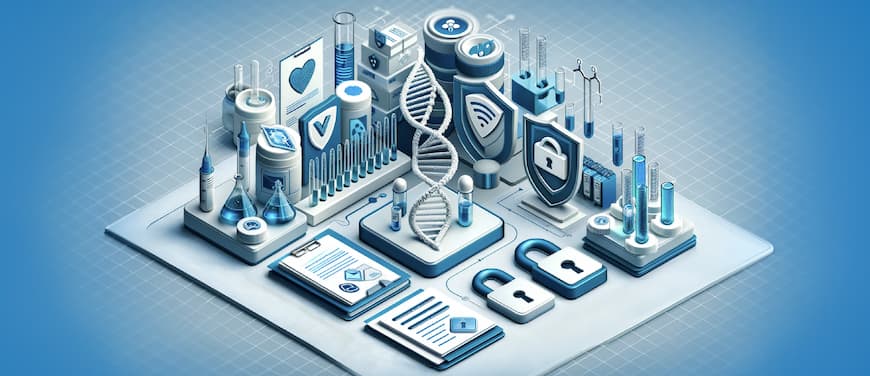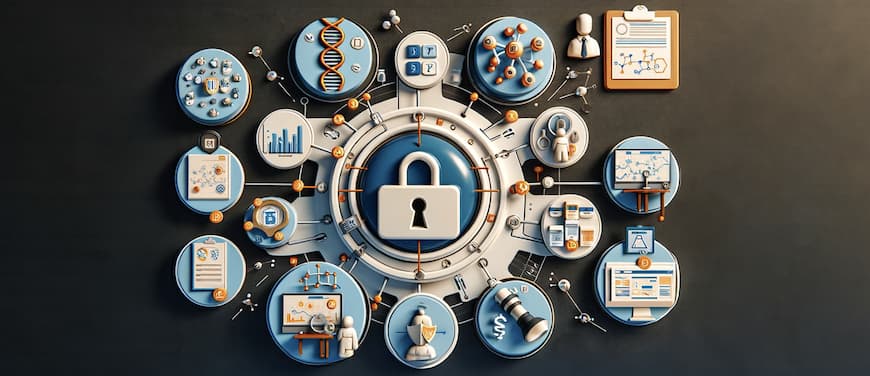In the highly competitive field of biotechnology, the exchange of sensitive information is a common occurrence. Researchers, scientists, and biotech companies often collaborate on projects that involve secure file sharing of confidential data.
Ensuring the security of this information is paramount to protect intellectual property, maintain regulatory compliance, and foster trust among collaborators. One solution that has become indispensable in this regard is the use of Virtual Data Rooms (VDRs).
Understanding the Need for Security in Biotech File Sharing

Biotech research involves the handling of proprietary data, clinical trial results, genetic information, and other confidential materials. Given the sensitive nature of this data, it is crucial to implement robust security measures to safeguard against unauthorized access, data breaches, and intellectual property theft. Traditional file-sharing methods, such as email attachments or physical documents, are no longer sufficient in meeting the stringent security requirements of the biotech industry.
The Role of Virtual Data Rooms (VDRs)

Virtual Data Rooms have emerged as a secure and efficient solution for managing and sharing sensitive information in the biotech sector. VDRs are online repositories that provide a secure environment for storing, sharing, and collaborating on documents. The following are key ways in which VDRs play a crucial role in secure file sharing within the biotech industry:
Encryption and Data Security
VDRs employ advanced encryption technologies to protect data both in transit and at rest. This ensures that even if unauthorized access occurs, the data remains unreadable and secure. Biotech companies can confidently share sensitive documents knowing that their information is protected by industry-standard security protocols.
Granular Access Controls
VDRs offer granular access controls, allowing administrators to define and manage user permissions. This means that only authorized individuals have access to specific documents or folders. This level of control is essential when collaborating with external partners, ensuring that confidential information is only accessible to those who need it.
Document Tracking and Audit Trails
VDRs provide detailed audit trails and tracking features, allowing companies to monitor user activity within the virtual environment. This transparency is crucial for regulatory compliance and internal auditing purposes. In the biotech industry, where adherence to regulations is paramount, having a comprehensive record of document access and changes is invaluable.
Secure Collaboration Features
Biotech projects often involve collaboration among researchers, scientists, and external partners. VDRs offer secure collaboration features, such as real-time document editing, commenting, and version control. These functionalities streamline collaboration without compromising data security.
Compliance with Regulatory Standards
The biotech industry is subject to various regulatory standards and compliance requirements. VDRs are designed to meet these standards, providing a secure platform that aligns with regulations such as HIPAA, GDPR, and 21 CFR Part 11. Choosing a VDR that is compliant with industry-specific regulations is crucial for biotech companies.
In the dynamic and innovative landscape of biotechnology, secure file sharing is a non-negotiable aspect of collaboration. Virtual Data Rooms have proven to be a vital tool in meeting the unique security challenges faced by biotech companies.
By leveraging the encryption, access controls, audit trails, and compliance features offered by VDRs, biotech professionals can share confidential information confidently, fostering collaboration and driving advancements in the field while maintaining the highest standards of data security.
ShareVault has been providing biotech companies with secure document sharing solutions for over 15 years.
